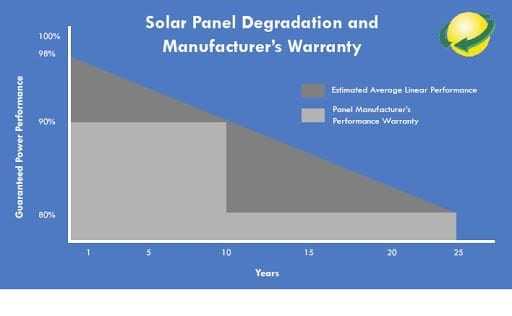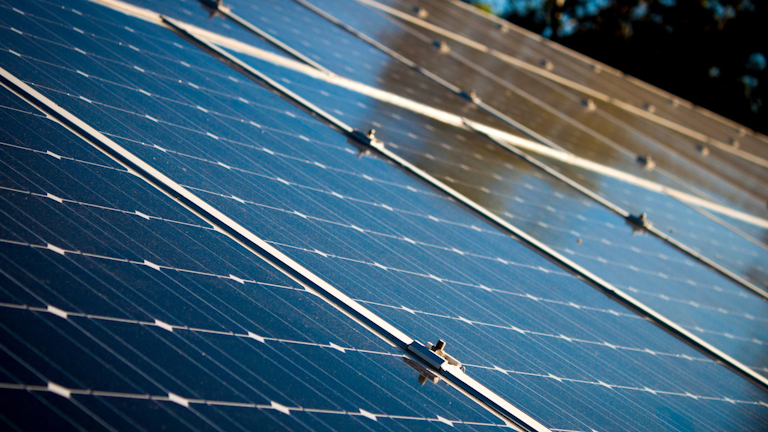Why Do Solar Panels Lose Efficiency

Use the solar panel s warranty to compare output loss over time because that is the only output you are guaranteed.
Why do solar panels lose efficiency. For many panels this is given as 2 to 3 in the first year and then 0 7 a year after that but it can be as low as 0 25 a year for some. It may seem counter intuitive but solar panel efficiency is affected negatively by temperature increases. Solar cell efficiency refers to the portion of energy in the form of sunlight that can be converted via photovoltaics into electricity by the solar cell. One solar panel from 1979 was tested in 2010 after 30 years and its output was better than the.
There are lots of different reasons why they degrade and why they fail kurtz said module manufacturers are looking into every piece of the solar panel puzzle all the way down to the encapsulants and adhesion materials to try to slow degradation rates. Solar panel degradation and failure is not a clear cut situation kurtz said. Replacing the racking because the racking system is drilled into the roof to hold the panels it is more exposed to the elements including sun rain snow and extreme temperatures. Solar site assessors use these rates.
Tests by the german fraunhofer institute showed that solar panels which are susceptible can lose more than 30 of their rated power through this. The highest efficiency solar panels on the market today can reach almost 23 percent efficiency. Solar panels have been consistently increasing in efficiency at about 5 annually since 2010. Potential induced degradation pid is a relatively recently discovered phenomenon which can occur in solar panels although a concise understanding of what causes it is still being finalised.
When solar panels loose efficiency how does that happen. Degradation rates are used in solar site assessments in order to estimate the energy production over the life of a system and to calculate the payback period and return on investment. Factors that affect solar panel efficiency. If the surface temperature of your roof increases to 30 c 86 f your solar panel s efficiency will fall to 16 7 percent.
This is how much of the light energy falling on the panel gets converted into electrical energy. The average efficiency of solar panels falls between the 17 to 19 percent efficiency range. Those panels could retain 96 of their production capabilities after 20 years. The hardware that makes up a solar system including the racking solar batteries and inverter have a higher chance of breaking than the actual solar panels do.
If you have solar panels with an efficiency rating of 17 percent and a temperature coefficient of 0 45 they will lose 0 45 of their efficiency for every degree above 25 c. Realistically expect less than a 3 decrease in output the first year and about 5 decrease per year after that for most panels.



















